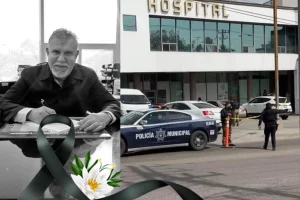CONDENA MH CLÚSTER ATAQUE ARMADO A HOSPITAL ARCÁNGELES
Leer más
What Are the Symptoms of Omicron BA.5?

Omicron BA.5 is now the dominant COVID-19 variant in the United States.1Experts said that while this subvariant may be more capable of evading natural and vaccine-induced immunity, BA.5 symptoms are similar to those caused by earlier versions of Omicron.
It is very hard to distinguish one variant from the other based on symptoms, according to Irfan Hafiz, MD, chief medical officer at Northwestern Medicine McHenry Hospital. He said that symptoms such as runny nose, cough, headaches, and muscle aches remain the most common across different variants.
People infected with BA.5 may experience these typical COVID-19 symptoms, sore throat, and fatigue, but they are less likely to report fevers or loss of taste and smell, said Andy Pekosz, PhD, a virologist and professor at the Johns Hopkins Bloomberg School of Public Health.
There have been recent reports of people who experience symptoms like those of viral meningitis, an inflammation of the brain and spinal cord membranes. Typical meningitis symptoms include neck stiffness or pain, numbness, tingling, and sensitivity to light.
A 2020 case study once discussed a 21-year-old COVID-19 patient who developed symptoms that appeared to be exclusive to meningitis, such as neck stiffness. He had no respiratory symptoms, like cough or shortness of breath, but he eventually tested positive for COVID-19 on his fifth day of hospitalization.2
Last year, there was one case report of COVID-19–associated viral meningitis in a 9-year-old patient.3
At this time, however, there is no concrete evidence that Omicron BA.5 is causing meningitis-like symptoms, Pekosz said.
When Should You Seek Medical Attention?
Hafiz said that if you think you have COVID-19 and you are experiencing meningitis-like symptoms, you can remain at home to recover if you are under the age of 45, fully vaccinated, and have no serious medical conditions like cancer or chronic heart, lung, or kidney disease.
However, if you experience worsening symptoms such as disorientation and shortness of breath, you need to seek medical attention immediately.
In general, if you have any COVID-19 symptoms, you should either take a rapid antigen or PCR test to confirm and get treated. Pekosz said that it is best to have two negative results from rapid tests on consecutive days to make sure you are not infected with the virus.
“If you are in a high-risk category, you should seek out a ‘test to treat’ center so that you can get a prescription for a COVID-19 antiviral as soon as possible—they work best when taken early after symptom onset.”
https://www.verywellhealth.com/omicron-ba5-symptoms-5537119
Créditos: Comité científico Covid




